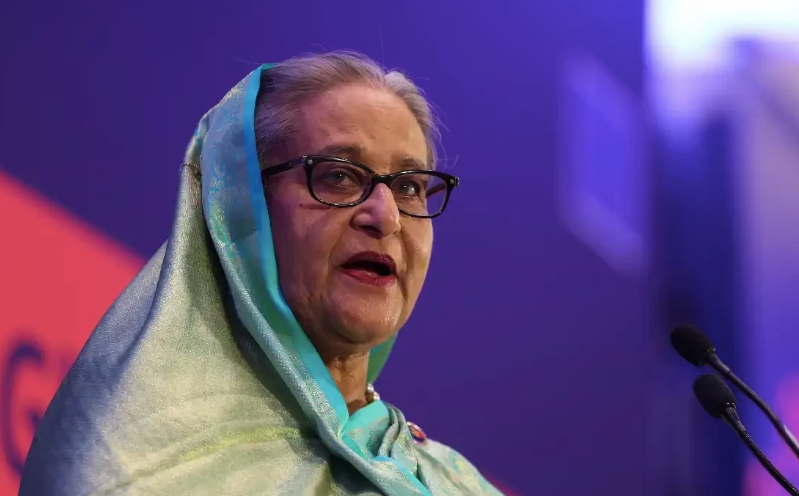Former Bangladesh Prime Minister Sheikh Hasina has been found guilty of crimes against humanity in absentia over her role in the deadly crackdown on a student-led uprising in 2024. The ruling was delivered by a three-judge bench of the country’s international crimes tribunal in Dhaka.
Justice Golam Mortuza Mozumder, reading the verdict, said Hasina “committed crimes against humanity by her order to use drones, helicopters, and lethal weapons” against anti-government protesters. The court convicted her of murder, extermination, torture, and other inhumane acts.
Hasina, who fled Bangladesh in August 2024, has been living in exile in India. She denied all charges, describing the tribunal as a “politically motivated charade.” In an audio message before the verdict, she remained defiant, stating, “Let them announce whatever verdict they want. It doesn’t matter to me. Allah gave me this life, and only he can end it. I will still serve my people.”
The tribunal trial lasted several months, and her absence from the courtroom was noted during the announcement. Security in Dhaka was tightened ahead of the verdict, with police, army, and paramilitary forces deployed around the tribunal. Authorities issued a “shoot-on-sight” order in response to threats of violence, after a small explosive was hurled near the court on Monday.
The 2024 uprising, often referred to as the “July revolution,” began as a student movement but quickly escalated into nationwide protests against Hasina’s rule. Her 15-year tenure was widely criticized for authoritarian practices, including corruption, enforced disappearances, and political repression. The UN estimates that the crackdown claimed up to 1,400 lives, marking the worst political violence in Bangladesh since its 1971 independence war.
The prosecution of Hasina was a key promise of the interim government, led by Nobel laureate Mohammad Yunus, who was appointed by protest leaders. Mohammad Tajul Islam served as chief prosecutor in the landmark trial, which has captured global attention.

